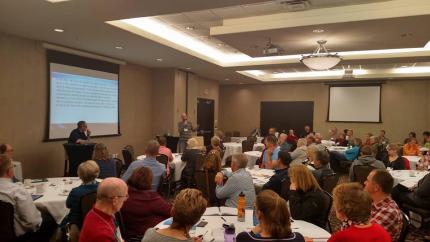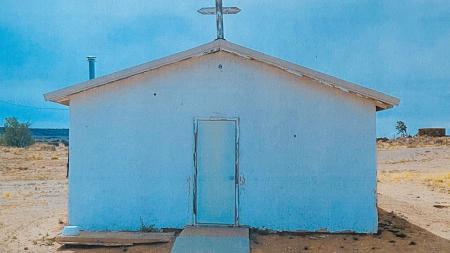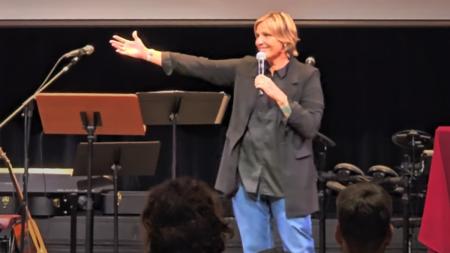Church Leadership Project Brings Denominations Together

Ridder Church Renewal participants in Ontario gather for a joint learning session.
“I can clearly see in conversations everywhere I go that RCA and CRC pastors are talking to each other like they haven’t before,” said Chris DeVos.
DeVos is a former pastor at Pillar Church in Holland, Mich. This congregation has a relatively unique identity in that it belongs to both the Christian Reformed Church (CRC) and the Reformed Church in America (RCA) denominations.
As a pastor in the church, DeVos participated several years ago in a leadership program, called Ridder Church Renewal. This is an intensive multi-year project aimed at renewing CRC and RCA churches by focusing on leadership development for pastors and a team of four to six other leaders from each church involved.
Each group of leaders is assigned homework and meets together monthly to share lessons learned. They also network with other church leadership groups involved in the project. The intent is to help participants grow into the types of leaders that can work collaboratively with others and be adaptive leaders in their congregation.
Along the way, the Ridder Church Renewal program has also helped bridge a divide between CRC and RCA churches, bringing both denominations together for mutual learning.
“The Ridder Church Renewal initiative started out of the vision of Bud and Lenora Ridder to help church leaders bring about their capacity to bring about change in their church and bring about transformation in their congregation,” said DeVos, who now serves as Associate Director of Ridder Church Renewal.
The program is housed in Western Theological Seminary and was originally designed for churches from the Reformed Church in America. The lessons learned, however, soon reached CRC churches as well. Back in 2008, a handful of Christian Reformed Churches joined 12 or 15 RCA churches who were involved in the Ridder Church Renewal process.
“It happened by accident really,” said DeVos about the involvement of CRC churches in Ridder. “As a few churches began to participate, those who were leading began to say ‘hey, we think this might be a good thing for both of our denominations.’”
While extending the program to both denominations was not in the original design, it has flourished as a joint project. Today, there is financial support from both denominations for the project.
There are RCA and CRC people who sit together on an oversight team that helps to make decisions about curriculum and expansion. There are also almost 100 congregations that gather together in six different regions throughout North America. In every one of those regions there is at least one CRC and one RCA congregation.
“Since the focus of our work is really on helping the leaders become the kind of people to lead churches to become more missional, what they are learning most together is that this is the same thing in both of our denominations,” DeVos explained about the cross-pollination of the two denominations working together. “They find out fairly quickly that we face the same challenges.”
Leaders from both CRC and RCA congregations are able to talk to each other about how their congregations are dealing with dwindling budgets, irregular church attendance, aging populations, and how they can articulate the gospel in their local church context and in the world today. This is bearing fruit at the individual and local church level.
“We’re seeing over and over again, pastors testify to the fact that they are still in ministry, their marriages are still together, they are still able to grow and understand and love their churches in really difficult times,” said DeVos, noting that this is an improvement over trends in both the U.S.and Canada that show high levels of people leaving pastoral ministry after the first few years in ministry.
The project has also helped to change how the two denominations see each other.
“For those of us who grew up in the RCA or in the CRC, we’ve had this narrative about how somehow we’re better than the other, or that the other is at least different,” said DeVos, who admits that in both denominations there are more and more members who did not grow up in the church and who do not have this institutional history.
For those that did have previous biases, working together has helped people put aside their historical differences and focus on the common nature of our mission and how they want to move into the future, he said.
“As we focus on mission, the differences that we focused on before are fading into the background.”
Click here to hear a short video clip from Chris DeVos talking about the Ridder project.


